Mississippi Today
Shortage of OB-GYNs is leaving Mississippi moms-to-be stranded for care
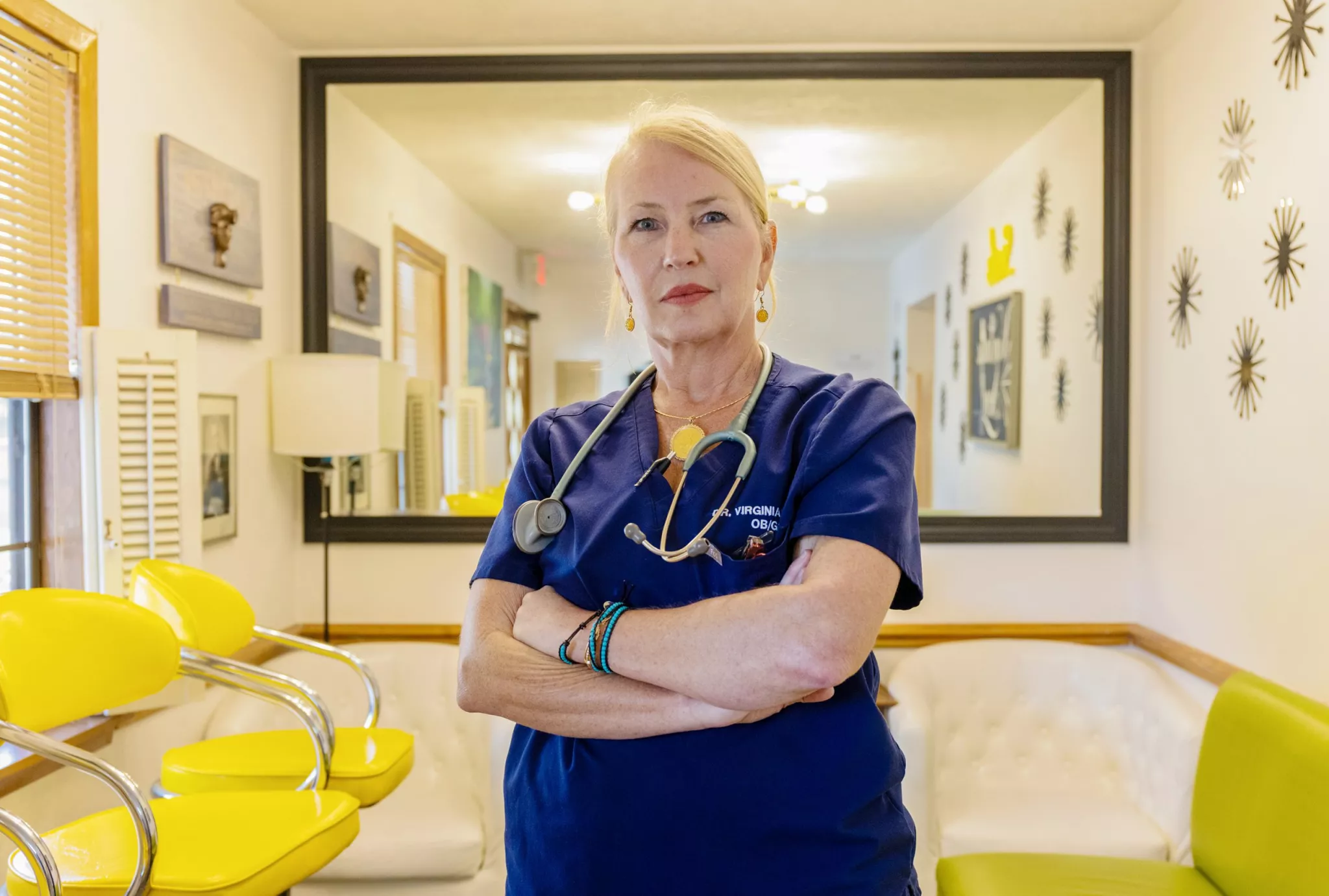
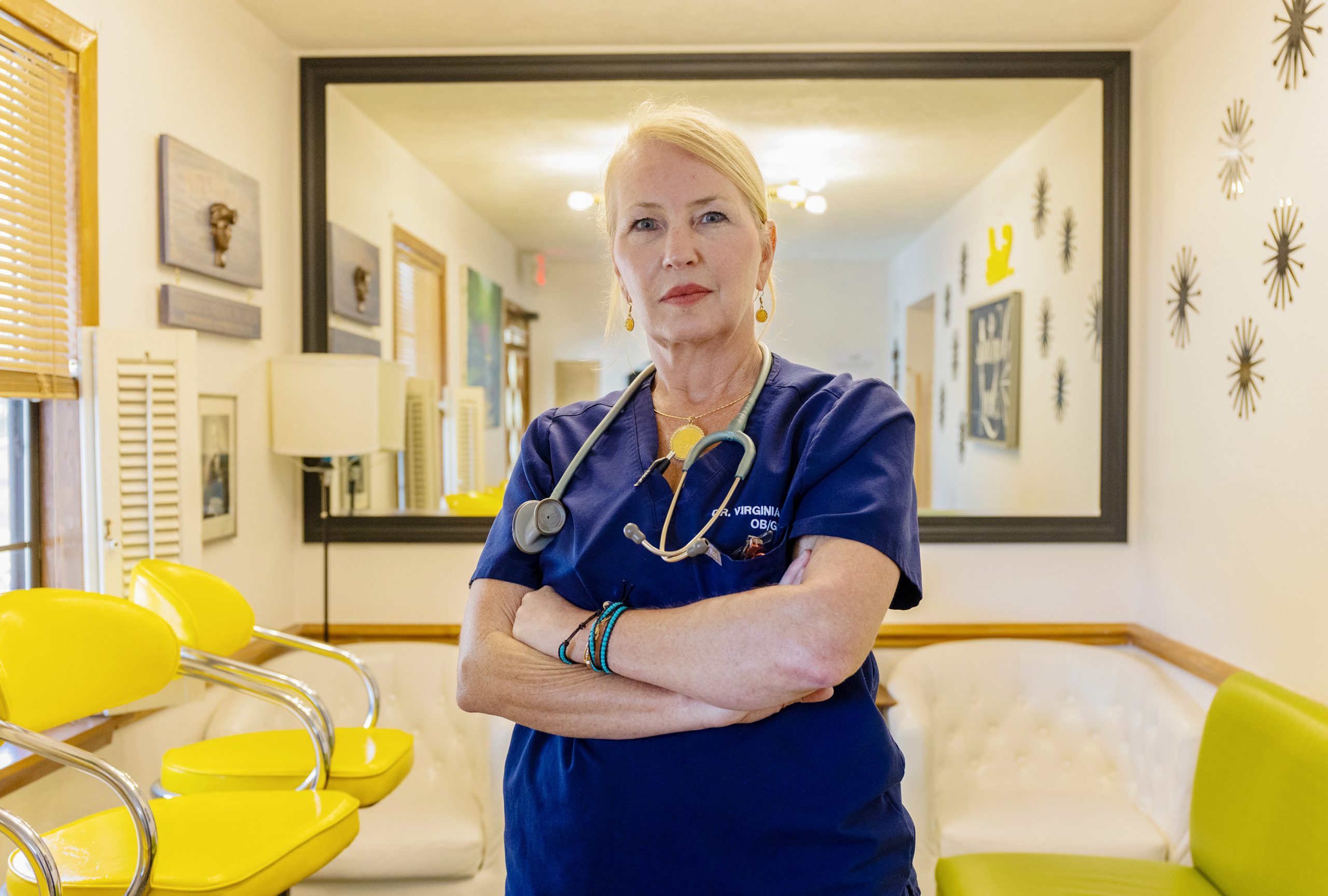
Kayla Dominick of Meridian knew something was not right – her periods were irregular and she felt constant pressure in her pelvis. She found a local OB-GYN who accepted Medicaid, and he performed an ultrasound of her uterus.
When it was recommended she undergo follow-up testing, including a uterine biopsy, she called the office to ask the doctor or nurse some questions and share concerns about the procedure. After leaving several messages and never hearing back, she decided to find another doctor.

But that didn’t prove simple: There are only 11 licensed OB-GYNs in Lauderdale County, home to Meridian, and its surrounding five counties, according to data from the Office of Mississippi Physician Workforce. Of those 11, only six reportedly practice obstetrics, or deliver babies.
At the same time, almost 28,000 women of reproductive age are living in that six-county area, according to U.S. Census data.
By comparison, in Rankin County, also home to about 28,000 women of reproductive age, there are 42 licensed OB-GYNs.
Mississippi as a whole is experiencing a shortage of these specialists. A recent WalletHub study ranked Mississippi as the worst state to have a baby. It came in 50th in the “midwives and OB-GYNs per capita” category, which it used data from the U.S. Bureau of Labor Statistics to determine. It also incorporated the state’s maternal and infant mortality rates – some of the worst in the nation – into the ranking.
More than half of Mississippi counties are considered maternity care deserts, or have no hospitals providing obstetric care, no OB-GYNs and no certified nurse midwives.
But the small number of OB-GYNs – particularly those still practicing obstetrics – in a metropolitan area like Meridian shows how tenuous the current workforce landscape is.
Dr. Norman Connell, market medical director for the OB Hospitalist Group and a Vicksburg-based OB-GYN, said about five years ago, the Meridian area had around 12 or 13 obstetric providers, most of them with privileges at both hospitals. Now, there are six providers on staff at both Ochsner Rush and Anderson Regional Medical Center.
In 2021, as a result of the drop in providers, both hospitals signed an agreement with Connell’s company to supply OB-GYN hospitalists, or providers from across the state, or even out of state, who work solely in an inpatient hospital setting.
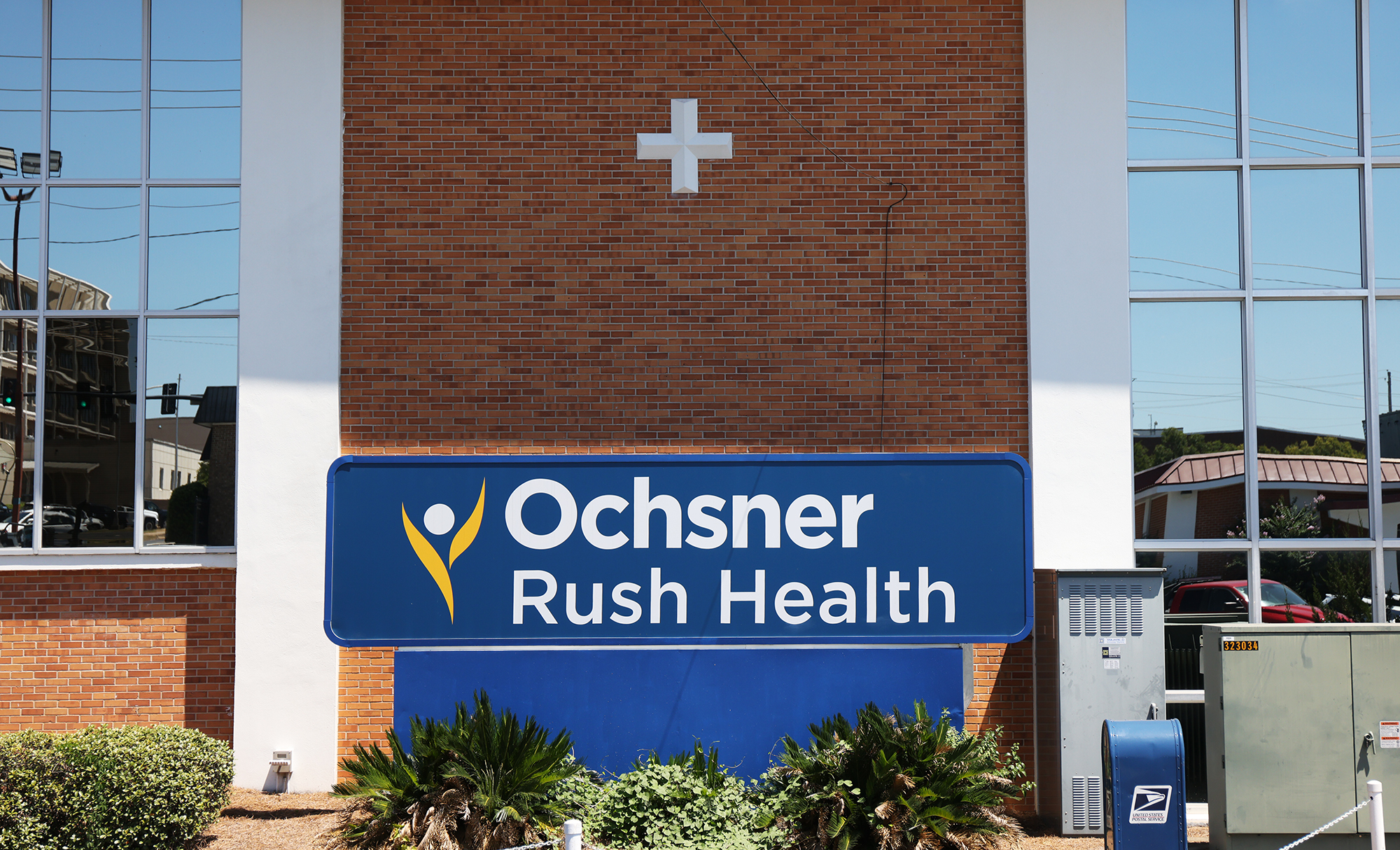
“The population of Meridian didn’t shrink, but the area lost over half of the OB providers in a few short years,” Connell said.
Connell said the doctors at his company allow the local OB-GYNs to stay in their clinics more often and see patients they need to see.
“In addition to that, we’re also the doctor for patients who don’t have physicians on staff there … and for people who haven’t gotten prenatal care and show up with an obstetric problem,” he explained.
The group also has contracts with seven other hospitals all over the state, from Magnolia Regional Health Center in Corinth to Mississippi Baptist Medical Center in Jackson.
For Dominick, finding another doctor who accepts Medicaid and who would perform the procedure was a challenge – a surprising one for the native of New Orleans, where health care services are abundant.
“In the New Orleans area, we have an urgent care (clinic) on almost every corner, open 24/7,” she said of the abundance of health care services.
Dominick, like many other women in Meridian, took to a Facebook group for Meridian moms to ask for OB-GYN recommendations. There are several posts in the group from women looking for OB-GYN recommendations, either because they need a new one or because the one they’ve been seeing is too busy for routine appointments like check-ups.
“Best obgyns to go to im tired of waiting to get an appointment at my doctors office I shouldn’t have to sit there for three hours when there’s 3 people in the waiting room or waiting 6 months to even get in,” one woman wrote.
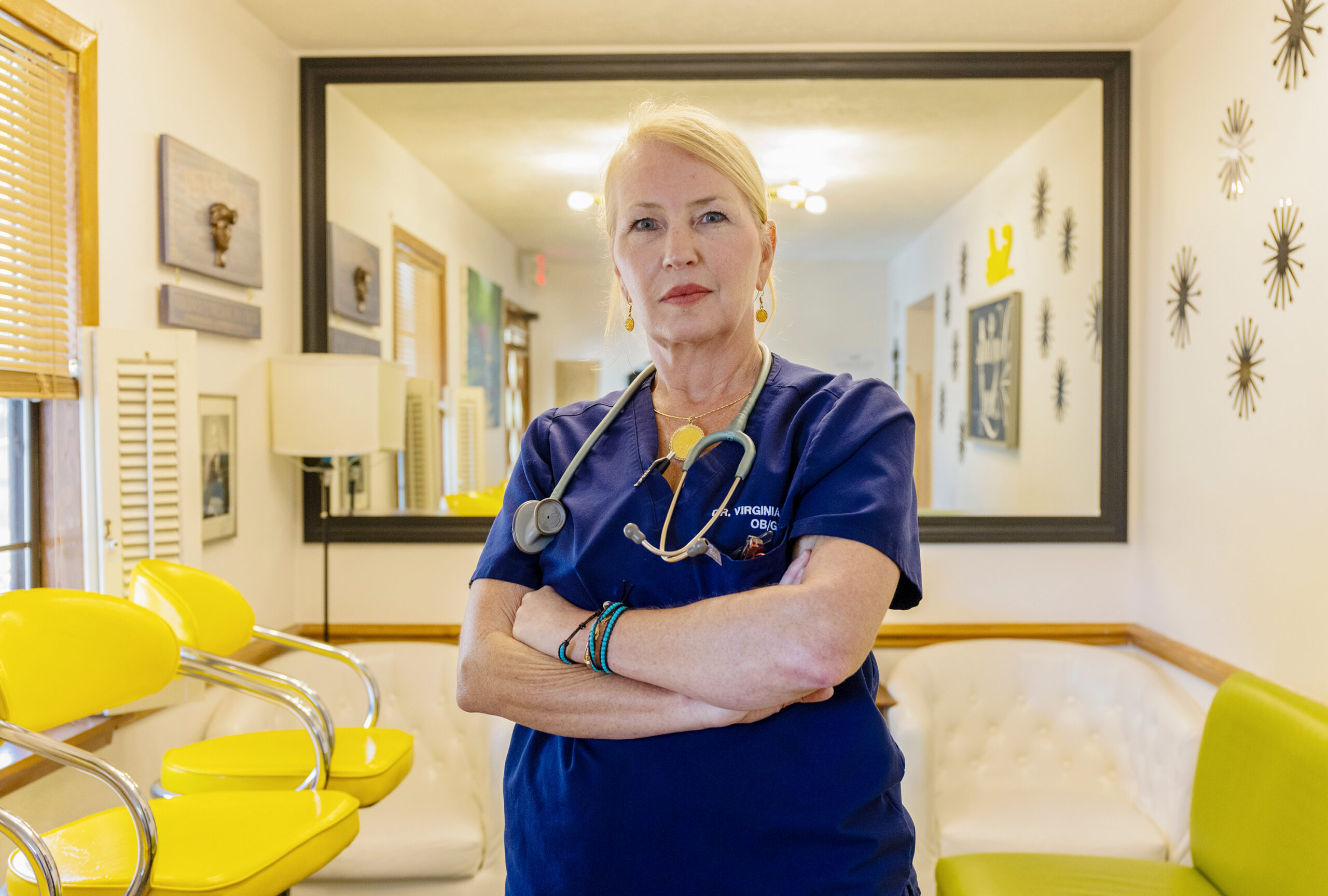
Dominick eventually landed an appointment with Dr. Jennifer Nelson, who has been an OB-GYN in the area for more than 20 years. Nelson, however, recently quit practicing obstetrics after spending the prior two years on call at the hospital 24 nights a month.
Nelson was absolutely exhausted, scrambling from the hospital to the clinic and back.
She remembers one night when several other OB-GYNs at the hospital were out of town, and she was sick with the flu. She wound up working anyway.
Anywhere from 40% to more than 75% of OB-GYNs experience burnout, studies show – in the middle to upper one-third of medical specialties.
On top of the physical and mental burnout from around-the-clock work, she had many high-risk patients to see in her clinic – patients who required a lot of time, she said, and often with insurance that did not reimburse well. About half of her patients were on Medicaid, she said.
Medicaid payments for physician services are well below Medicare payments, which are below commercial insurance rates. Mississippi also has one of the lowest average commercial reimbursement rates for both inpatient and outpatient services in the nation, according to a Milliman white paper.
“It’s expensive to do OB here. I ran my numbers one month – if every one of my OB patients had been Medicaid … I would not have been able to pay my overhead with my nurses, and that’s with me working for free, totally taking my salary out of it,” she said. “I would have been about $100,000 short.”
In her clinic now, she treats Medicaid patients when they are referred to her clinic and, on a case-by-case basis, unreferred patients. She said because the clinic is not designated a “rural health clinic” by the federal government, Medicaid reimbursements for services are very low.
“The (gynecology) side is very low reimbursement for general services if you don’t have a rural health clinic designation,” she explained.
Further compounding the issue is how sick the patient population in the area – and across the state – is.
“We have the sickest patient population, so they’re litigious, time consuming – I did a lot of high-risk pregnancies. It’s a lot of coming up at two in the morning to check on people who are super sick,” she said.
Mississippi leads the nation in areas such as obesity, high blood pressure and diabetes – all conditions that make pregnancy more dangerous and require more time and services from OB-GYNs and other maternal health practitioners. These conditions often lead to worse outcomes for women and babies.
As OB-GYNs stop practicing or retire, both in Mississippi and nationwide, they aren’t being replaced at the same rate. And it’s unknown how last year’s Dobbs decision that overturned Roe v. Wade is affecting the OB-GYN workforce in Mississippi, though other states with similar restrictive abortion laws have seen providers leave because of enhanced legal risks.
Dr. Michelle Owens, a maternal fetal medicine specialist who worked at the University of Mississippi Medical Center for nearly 20 years, said she suspects because the state’s laws have always been so restrictive in regards to abortion, Dobbs is not having an immediate effect on providers who live here.
“I think if anything, if people are concerned about the restrictive nature of practice of obstetrics and gynecology as it pertains to terminations services, that it (Dobbs) would probably be more influential on preventing people who want to provide that care. Those people aren’t going to come here (to Mississippi),” she said.
In a state with such a severe shortage, one must consider the ramifications of that, she said.
“The more we say we're in favor of allowing or condoning government interference in exam rooms, we have to also recognize there are some unintended consequences to those decisions – they don’t just happen in a vacuum,” she said.
There’s currently only one OB-GYN residency program in the state at the University of Mississippi Medical Center, and the program graduates six residents each year. Of the most recent graduates, only two stayed in Mississippi – prior years’ numbers average about the same.
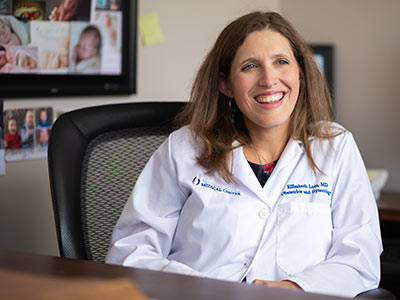
On top of that, there have been changes in how OB-GYNs work over the last decade nationally. Traditionally OB-GYNs worked at private clinics and had privileges at hospitals. Now, however, many OB-GYNs are hospitalists, or OB-GYNs who work solely in the inpatient setting, according to Dr. Elizabeth Lutz, associate professor of obstetrics and gynecology and the residency program director at the University of Mississippi Medical Center.
And more OB-GYNs today wind up completing fellowships, or going into a subspecialty such as maternal fetal medicine.
“Nowadays, closer than 30 to 40% of OB-GYN residents go into fellowship – that’s grown dramatically,” said Lutz, associate professor of obstetrics and gynecology and the residency program director at the University of Mississippi Medical Center.
Both Ochsner Rush, where Nelson previously had privileges, and Anderson in Meridian began contracting with the OB Hospitalist Group in 2021 to fill in the gaps created by the shortage. About eight OB-GYNs from across the state – and even some from out of state – work shifts at both hospitals.
Anderson averages about 1,020 births per year, according to a hospital spokesperson. Ochsner Rush averages just under 1,000 births annually.
“Due to a shortage of OB-GYN’s in east central Mississippi, Anderson Regional Health System partners with a OB Hospitalist group to supplement our three practicing OB-GYN’s in providing 24-hour obstetrics coverage every day,” said Dr. Keith Everett, chief medical officer at Anderson Regional Health System.
Both hospitals also employ advanced practice nurses called certified nurse midwives – Ochsner Rush has four on staff – who manage the care of low-risk patients. The midwives are also skilled at counseling and education of patients in areas such as nutrition, childbirth preparation and breastfeeding.
The use of certified nurse midwives in Mississippi is rare: there are fewer than 30 in the state, and only a few hospitals, including the two in Meridian, allow them to deliver babies.
Connell said he thinks the company’s role in the area – and in the state – will only continue to grow.
“I think Meridian paints a picture of (why this work is important),” he said. “... It’s a work in progress. We’re at the very beginning of making things better.”
This article first appeared on Mississippi Today and is republished here under a Creative Commons license.
Mississippi Today
Speaker White wants Christmas tree projects bill included in special legislative session

House Speaker Jason White sent a terse letter to Lt. Gov. Delbert Hosemann on Thursday, saying House leaders are frustrated with Senate leaders refusing to discuss a “Christmas tree” bill spending millions on special projects across the state.
The letter signals the two Republican leaders remain far apart on setting an overall $7 billion state budget. Bickering between the GOP leaders led to a stalemate and lawmakers ending their regular 2025 session without setting a budget. Gov. Tate Reeves plans to call them back into special session before the new budget year starts July 1 to avoid a shutdown, but wants them to have a budget mostly worked out before he does so.
White’s letter to Hosemann, which contains words in all capital letters that are underlined and italicized, said that the House wants to spend cash reserves on projects for state agencies, local communities, universities, colleges, and the Mississippi Department of Transportation.
“We believe the Senate position to NOT fund any local infrastructure projects is unreasonable,” White wrote.
The speaker in his letter noted that he and Hosemann had a meeting with the governor on Tuesday. Reeves, according to the letter, advised the two legislative leaders that if they couldn’t reach an agreement on how to disburse the surplus money, referred to as capital expense money, they should not spend any of it on infrastructure.
A spokesperson for Hosemann said the lieutenant governor has not yet reviewed the letter, and he was out of the office on Thursday working with a state agency.
“He is attending Good Friday services today, and will address any correspondence after the celebration of Easter,” the spokesperson said.
Hosemann has recently said the Legislature should set an austere budget in light of federal spending cuts coming from the Trump administration, and because state lawmakers this year passed a measure to eliminate the state income tax, the source of nearly a third of the state’s operating revenue.
Lawmakers spend capital expense money for multiple purposes, but the bulk of it — typically $200 million to $400 million a year — goes toward local projects, known as the Christmas Tree bill. Lawmakers jockey for a share of the spending for their home districts, in a process that has been called a political spoils system — areas with the most powerful lawmakers often get the largest share, not areas with the most needs. Legislative leaders often use the projects bill as either a carrot or stick to garner votes from rank and file legislators on other issues.
A Mississippi Today investigation last year revealed House Ways and Means Chairman Trey Lamar, a Republican from Sentobia, has steered tens of millions of dollars in Christmas tree spending to his district, including money to rebuild a road that runs by his north Mississippi home, renovate a nearby private country club golf course and to rebuild a tiny cul-de-sac that runs by a home he has in Jackson.
There is little oversight on how these funds are spent, and there is no requirement that lawmakers disburse the money in an equal manner or based on communities’ needs.
In the past, lawmakers borrowed money for Christmas tree bills. But state coffers have been full in recent years largely from federal pandemic aid spending, so the state has been spending its excess cash. White in his letter said the state has “ample funds” for a special projects bill.
“We, in the House, would like to sit down and have an agreement with our Senate counterparts on state agency Capital Expenditure spending AND local projects spending,” White wrote. “It is extremely important to our agencies and local governments. The ball is in your court, and the House awaits your response.”
This article first appeared on Mississippi Today and is republished here under a Creative Commons Attribution-NoDerivatives 4.0 International License.
Mississippi Today
Advocate: Election is the chance for Jackson to finally launch in the spirit of Blue Origin

Editor’s note: This essay is part of Mississippi Today Ideas, a platform for thoughtful Mississippians to share fact-based ideas about our state’s past, present and future. You can read more about the section here.
As the world recently watched the successful return of Blue Origin’s historic all-women crew from space, Jackson stands grounded. The city is still grappling with problems that no rocket can solve.
But the spirit of that mission — unity, courage and collective effort — can be applied right here in our capital city. Instead of launching away, it is time to launch together toward a more just, functioning and thriving Jackson.
The upcoming mayoral runoff election on April 22 provides such an opportunity, not just for a new administration, but for a new mindset. This isn’t about endorsements. It’s about engagement.
It’s a moment for the people of Jackson and Hinds County to take a long, honest look at ourselves and ask if we have shown up for our city and worked with elected officials, instead of remaining at odds with them.
It is time to vote again — this time with deeper understanding and shared responsibility. Jackson is in crisis — and crisis won’t wait.
According to the U.S. Census projections, Jackson is the fastest-shrinking city in the United States, losing nearly 4,000 residents in a single year. That kind of loss isn’t just about numbers. It’s about hope, resources, and people’s decision to give up rather than dig in.
Add to that the long-standing issues: a crippled water system, public safety concerns, economic decline and a sense of division that often pits neighbor against neighbor, party against party and race against race.
Mayor Chokwe Antar Lumumba has led through these storms, facing criticism for his handling of the water crisis, staffing issues and infrastructure delays. But did officials from the city, the county and the state truly collaborate with him or did they stand at a distance, waiting to assign blame?
On the flip side, his runoff opponent, state Sen. John Horhn, who has served for more than three decades, is now seeking to lead the very city he has represented from the Capitol. Voters should examine his legislative record and ask whether he used his influence to help stabilize the administration or only to position himself for this moment.
Blaming politicians is easy. Building cities is hard. And yet that is exactly what’s needed. Jackson’s future will not be secured by a mayor alone. It will take so many of Jackson’s residents — voters, business owners, faith leaders, students, retirees, parents and young people — to move this city forward. That’s the liftoff we need.
It is time to imagine Jackson as a capital city where clean, safe drinking water flows to every home — not just after lawsuits or emergencies, but through proactive maintenance and funding from city, state and federal partnerships. The involvement of the U.S. Environmental Protection Agency in the effort to improve the water system gives the city leverage.
Public safety must be a guarantee and includes prevention, not just response, with funding for community-based violence interruption programs, trauma services, youth job programs and reentry support. Other cities have done this and it’s working.
Education and workforce development are real priorities, preparing young people not just for diplomas but for meaningful careers. That means investing in public schools and in partnerships with HBCUs, trade programs and businesses rooted right here.
Additionally, city services — from trash collection to pothole repair — must be reliable, transparent and equitable, regardless of zip code or income. Seamless governance is possible when everyone is at the table.
Yes, democracy works because people show up. Not just to vote once, but to attend city council meetings, serve on boards, hold leaders accountable and help shape decisions about where resources go.
This election isn’t just about who gets the title of mayor. It’s about whether Jackson gets another chance at becoming the capital city Mississippi deserves — a place that leads by example and doesn’t lag behind.
The successful Blue Origin mission didn’t happen by chance. It took coordinated effort, diverse expertise and belief in what was possible. The same is true for this city.
We are not launching into space. But we can launch a new era marked by cooperation over conflict, and by sustained civic action over short-term outrage.
On April 22, go vote. Vote not just for a person, but for a path forward because Jackson deserves liftoff. It starts with us.
Pauline Rogers is a longtime advocate for criminal justice reform and the founder of the RECH Foundation, an organization dedicated to supporting formerly incarcerated individuals as they reintegrate into society. She is a Transformative Justice Fellow through The OpEd Project Public Voices Fellowship.
This article first appeared on Mississippi Today and is republished here under a Creative Commons Attribution-NoDerivatives 4.0 International License.![]()
Mississippi Today
On this day in 1959, students marched for integrated schools

April 18, 1959

About 26,000 students took part in the Youth March for Integrated Schools in Washington, D.C. They heard speeches by Martin Luther King Jr., A. Phillip Randolph and NAACP leader Roy Wilkins.
In advance of the march, false accusations were made that Communists had infiltrated the group. In response, the civil rights leaders put out a statement: “The sponsors of the March have not invited Communists or communist organizations. Nor have they invited members of the Ku Klux Klan or the White Citizens’ Council. We do not want the participation of these groups, nor of individuals or other organizations holding similar views.”
After the march, a delegation of students went to present their demands to President Eisenhower, only to be told by his deputy assistant that “the president is just as anxious as they are to see an America where discrimination does not exist, where equality of opportunity is available to all.”
King praised the students, saying, “In your great movement to organize a march for integrated schools, you have awakened on hundreds of campuses throughout the land a new spirit of social inquiry to the benefit of all Americans.”
This article first appeared on Mississippi Today and is republished here under a Creative Commons Attribution-NoDerivatives 4.0 International License.![]()
-

 Mississippi Today6 days ago
Mississippi Today6 days agoLawmakers used to fail passing a budget over policy disagreement. This year, they failed over childish bickering.
-

 Mississippi Today6 days ago
Mississippi Today6 days agoOn this day in 1873, La. courthouse scene of racial carnage
-

 Local News7 days ago
Local News7 days agoAG Fitch and Children’s Advocacy Centers of Mississippi Announce Statewide Protocol for Child Abuse Response
-

 Local News6 days ago
Local News6 days agoSouthern Miss Professor Inducted into U.S. Hydrographer Hall of Fame
-

 News from the South - Alabama News Feed4 days ago
News from the South - Alabama News Feed4 days agoFoley man wins Race to the Finish as Kyle Larson gets first win of 2025 Xfinity Series at Bristol
-

 News from the South - Alabama News Feed5 days ago
News from the South - Alabama News Feed5 days agoFederal appeals court upholds ruling against Alabama panhandling laws
-

 Our Mississippi Home7 days ago
Our Mississippi Home7 days agoFood Chain Drama | Our Mississippi Home
-

 News from the South - North Carolina News Feed7 days ago
News from the South - North Carolina News Feed7 days agoHelene: Renewed focus on health of North Carolina streams | North Carolina


















































